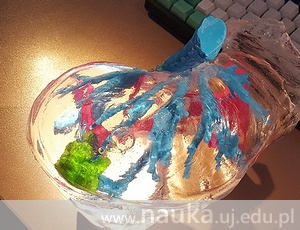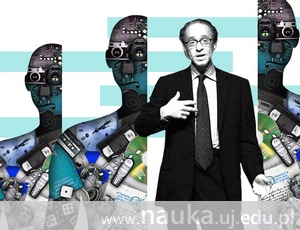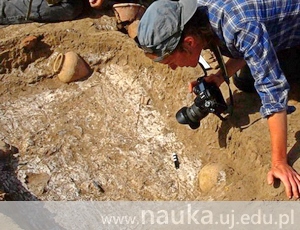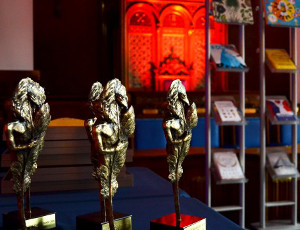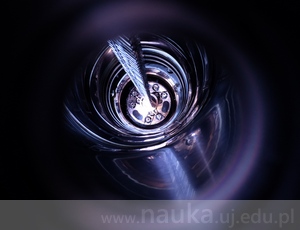 Web Content Display
Web Content Display
JU Research
 Web Content Display
Web Content Display
 Web Content Display
Web Content Display
JU science communication
Cooper test: ATP urgently needed
08.06.2017
Ready, steady, go! 12 minutes of intense running ahead. The Cooper test will show how our bodies cope with physical effort. In fact, it will indicate how efficient our cells are in producing energy.
Read More o Cooper test: ATP urgently needed
What exactly happens to the food we eat?
06.06.2017
Have you ever wondered what happens to food after we put it in our mouths? Paweł Jedynak from the Faculty of Biochemistry, Biophysics and Biotechnology describes the journey the food takes through our organisms, and uses this opportunity to discuss and debunk a recently popular myth – the leaky gut syndrome.
Read More o What exactly happens to the food we eat?
Nobody saw the criminal, but still we know what they look like
02.06.2017
Crime scene. The perp’s long gone. There are no eyewitnesses, and the police don’t know who did it. Will the investigators be able to identify the criminal? Scientists from the Jagiellonian University are working on a project that will employ detailed DNA analysis to do just that.
Read More o Nobody saw the criminal, but still we know what they look like
Liver model created by JU student shows how 3D printing revolutionises medicine
26.05.2017
Complicated operations on internal organs will soon become much easier thanks to the technology developed by Jan Witowski, a student of the Jagiellonian University Medical College.
Read More o Liver model created by JU student shows how 3D printing revolutionises medicine
Immortality in just 30 years?
15.05.2017
Ray Kurzweil, an influential futurist, the man who correctly predicted the advent of wireless Internet access, has prophesised a new, revolutionary vision of the future: from 2045 and onwards, people will be able to live forever. This can’t be true, can it? Does Kurzweil have any compelling arguments to support his claim?
Read More o Immortality in just 30 years?
This is not science-fiction, time crystals really exist
09.05.2017
The concept of time crystals sounds like something straight from a science fiction novel. You couldn’t be more wrong. Quantum time crystals have already been created at the laboratories of the University of Maryland and Harvard University. Their existence was earlier predicted by Prof. Krzysztof Sacha from the Jagiellonian University.
Read More o This is not science-fiction, time crystals really exist
5,000 years ago in the Nile Delta
26.04.2017
In March 2017, researchers from the JU Institute of Archaeology began another season of excavations in Egypt, at the Tell el-Murra site located in the eastern part of the Nile Delta.
Read More o 5,000 years ago in the Nile Delta
Winners of the Smart Book of the Year 2016 competition announced
24.04.2017
Five awards were presented in the second edition of the contests for the best scientific book for the general reader, organised jointly by the Jagiellonian University and Euclid Science Communication Foundation.
Read More o Winners of the Smart Book of the Year 2016 competition announced
JU physicists in search of undiscovered particles
07.04.2017
A group of JU researchers participates in a study which aims to answer the most basic questions of modern science. It can lead to the discovery of an all new particle – an achievement rivalling the registration of the Higgs boson.
Read More o JU physicists in search of undiscovered particles
A little bit about mobile phones
05.04.2017
We all use them every day, but most of us have no idea how they work. We asked Dr Tomasz Kawalec from the JU Institute of Physics to explain the science behind one of the most popular modern appliances.
Read More o A little bit about mobile phones




